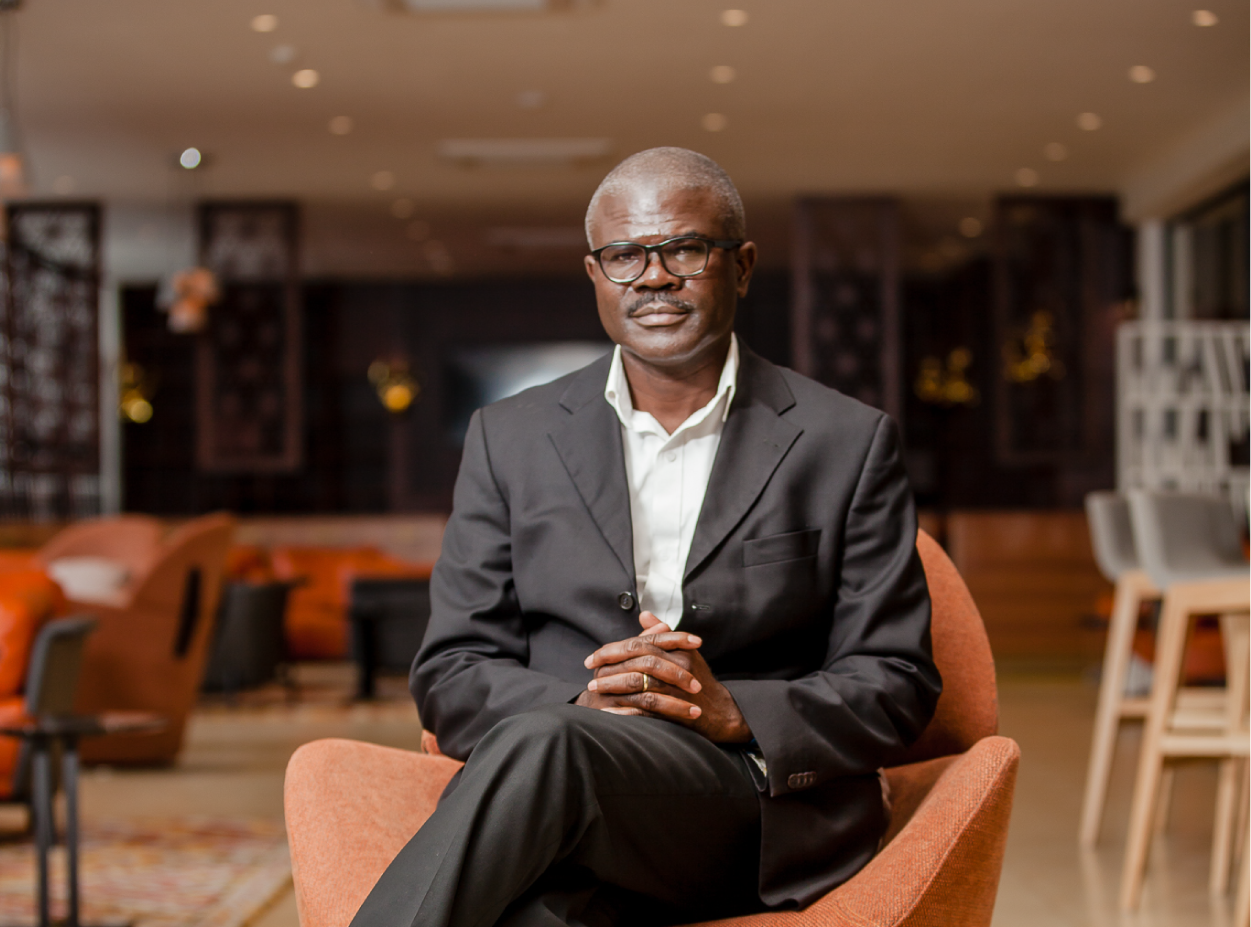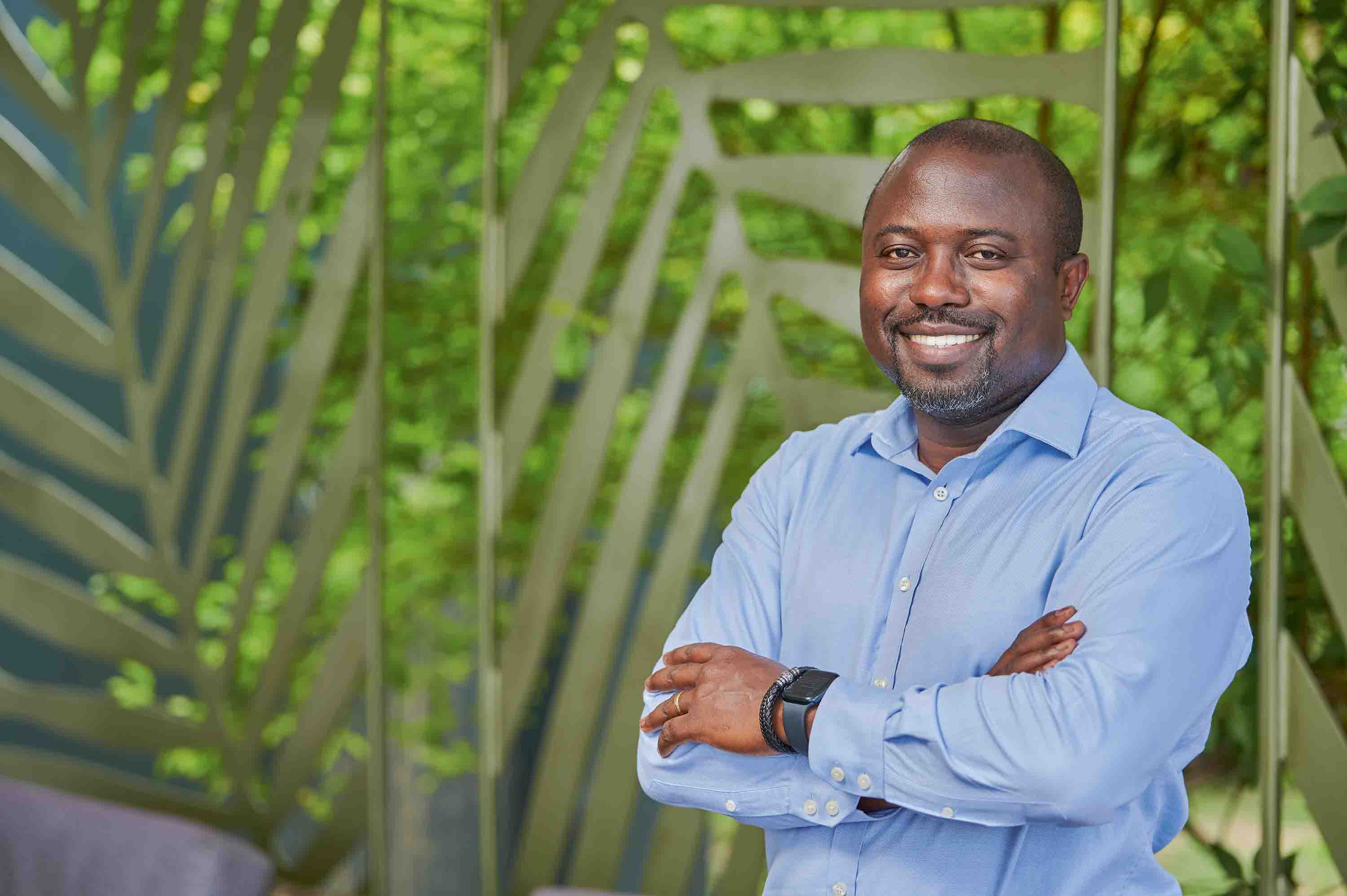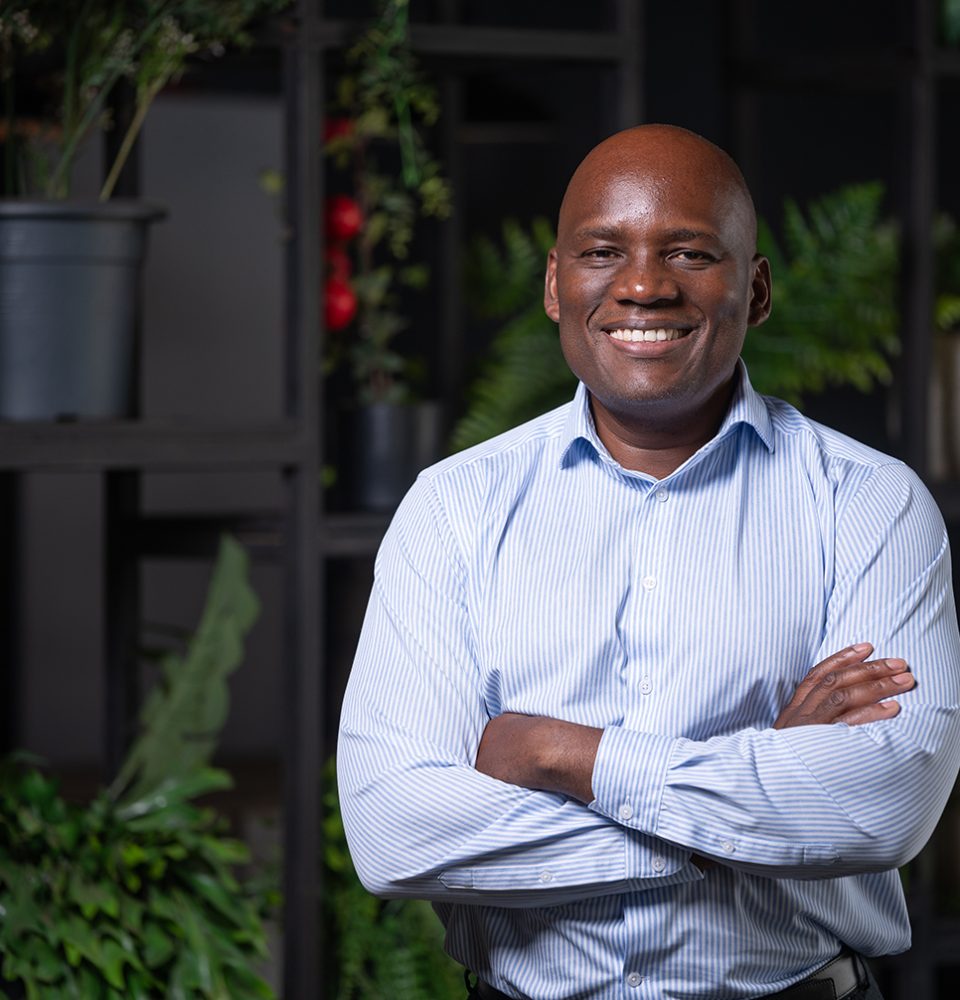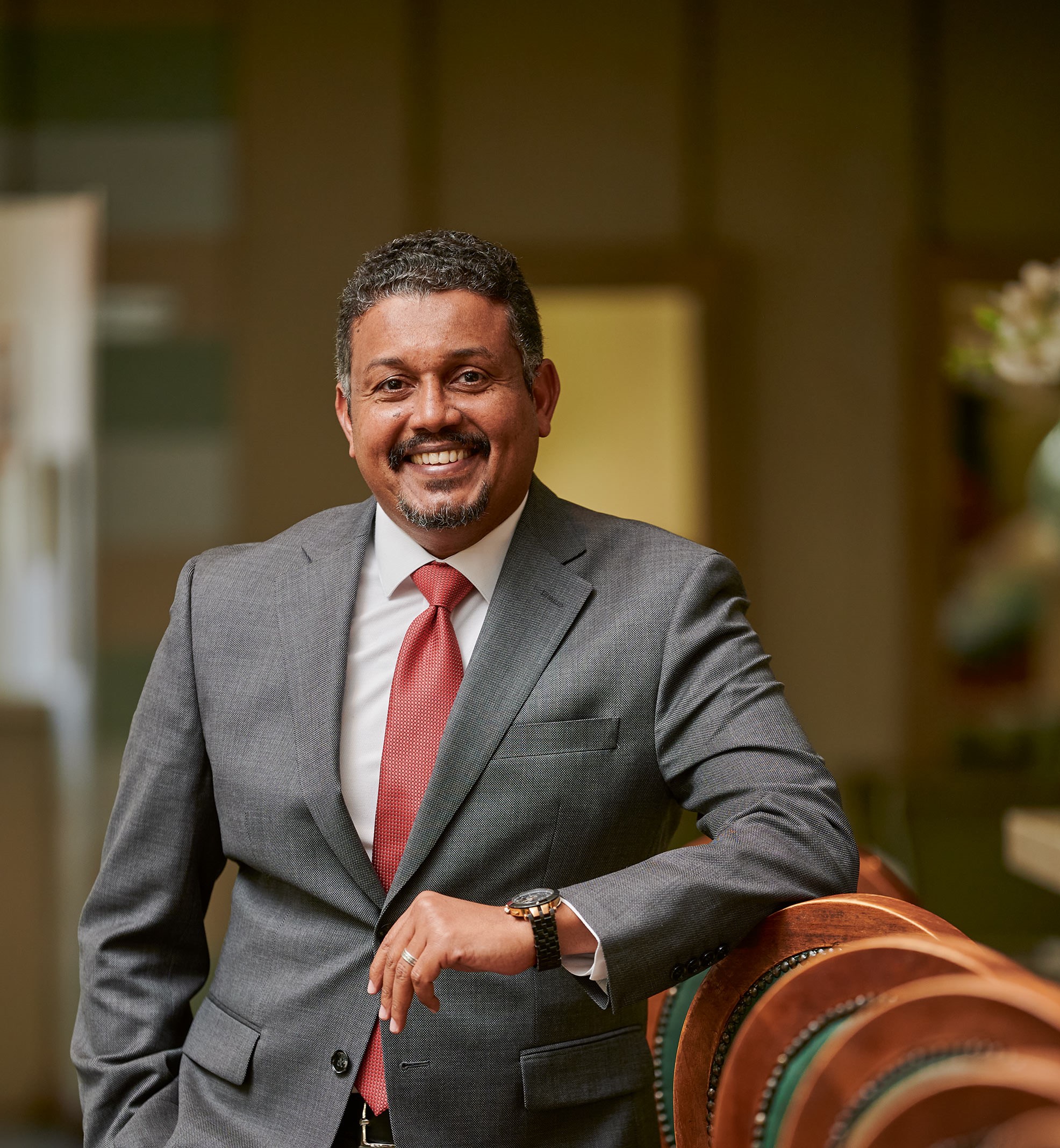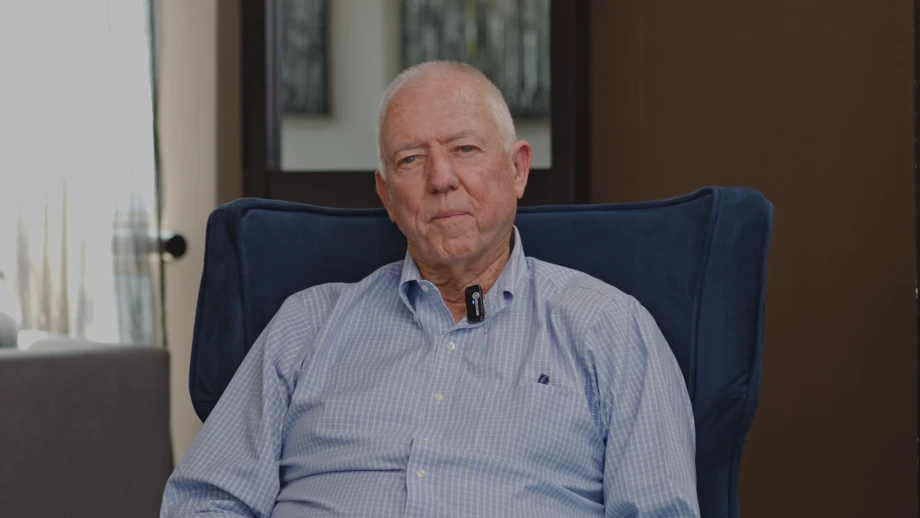I n the world of banking, few names conjure up as much respect as that of James Koni. Now the CEO of Atlas Mara, formed by a merger between Finance Bank and BancABC, James is a stalwart in the world of banking with a career that resembles that of the brightest Wall Street banker. The first thing you notice when you interact with James is his assuredness. He is a man who has committed himself to fulfilling his childhood vision of building a career in banking and finance. Today, that vision is very much his reality.
James was born in Lusaka and is the seventh child in a family of eleven. James’ parents taught him and his siblings the importance of discipline and hard work, especially when it came to academics. As a result of his work ethic and drive, James attended Kabulonga Boys High School, a prestigious school at the time, and became the school’s head boy.
He attributes his success in school to the values that his parents instilled in him growing up and the friends that he deliberately chose to associate with. “I found myself befriending people who were quite serious about school. All they cared about was school. You were defined by the grade that you achieved,” James said, in a relaxed tone that he used throughout the interview. This early taste of success that James enjoyed in high school prepared him to succeed in the competitive world of banking.
After high school, James was awarded a scholarship to study accountancy in Chingola at the Accountancy Training College that was owned by ZCCM at the time. Unlike many new college and university entrants that are unsure about what they intend to study, James had long decided that he wanted to pursue a career in accounting and made deliberate choices that would prepare him for this course. Part of the inspiration for this decision came from observing an uncle who in James’ own words “was smart, was sharp and always appeared to be loaded.” That is always a good motivation to have.
James graduated from college in 1996, a time of heightened economic activity in Zambia driven by privatisation and the liberalisation of the economy. To ensure the success of privatisation efforts, the Bank of Zambia needed to strengthen its bank supervision division, the division of the bank that is responsible for monitoring and regulating the activities of commercial banks in the country. With his new ACCA qualification, James joined the Bank of Zambia as an inspector and as they say, the rest is history. What distinguishes James’ career from other bankers, is the amount of time that he has spent working abroad, in the most sophisticated financial markets in the world. The experience gained from these international assignments gives James a world view that many of his peers who have only worked in the local market do not have.
When you just start leading, you want to please everyone… Eventually, you figure out you can’t please everyone. I have learned that what I have to do is the right thing, and people identify with the right thing and they agree with you.
As a child, James Koni dreamed of being a banker and worked hard to make his dream a reality. Today he is CEO of Atlas Mara Bank Zambia Limited, following many years working in the banking sector in Zambia and the UK.

The opportunity to work abroad came via the UK’s Highly Skilled Migrants Programme (HSMP) which was designed to allow highly skilled people to immigrate into the United Kingdom to look for jobs or self-employment opportunities. As a chartered accountant and an MBA graduate, James applied for this programme and was selected from a competitive field of applicants after meeting the rigorous criteria. London is the most sophisticated financial centre in the world and it provided a perfect blend of opportunity and challenge for the ambitious James.
James would go on to live and work in London for a combined period of 11 years. In these 11 years, he enjoyed a great amount of success which he attributes to his work ethic and positive outlook on life. His first job in London was at the prestigious State Street Bank which at the time was the world’s largest custody bank, where he worked as a manager in the finance team.
Following this role, he worked for Citi Bank in treasury for a short while before landing at J.P. Morgan, during the much-publicised merger with Chase Bank.
He was part of the success of the merger and he used his skills to help J.P. Morgan create a system for multicurrency reporting. “I deeply enjoyed working with the best and the brightest minds including Marianne Lake, who later became Group CFO for J.P. Morgan, and the experience was deeply satisfying,” says James about his time at J.P. Morgan. James went on to work for Barclays Capital and Royal Bank of Scotland, where he rose to director in the risk department.
After 11 years in a fast-paced environment, he began looking for opportunities back home in Zambia. James and his wife Cynthia were motivated by a desire to give their children, Mupasha, Lushomo and Grace-Chipo, a taste of home and to help them connect with their roots. James returned to Zambia and took the job of CFO at Standard Chartered and shortly thereafter as CFO of BancABC, a small bank in Zambia that gave James his next challenge. At Standard Chartered, James inspired his finance team members, such that three of them are now CFOs of various banks in Zambia.
A common theme in James’ life is leadership. He has led fearlessly and boldly in all areas of his life from the time he decided that he wanted to be a banker. At BancABC he led the bank through what is today the biggest corporate story in Zambia, the merging of Finance Bank and BancABC to form Atlas Mara. According to James, “One thing you learn in leadership is that you don’t always choose the timing of when you are going to become a leader, and you don’t feel ready,” but with the right attitude and skillset, James is writing a new story for Atlas Mara and for himself. Today, Atlas Mara is a successful and fully integrated bank that is thriving in Zambia. “As a leader, I had to demonstrate that I could be trusted, I was open, I was fair, I was empathetic and I could show the people where we were going and what we had to do to get there” recalls James about the challenge of leading through the merger. He also credits the success of the merger to his team who were passionate about making the new bank work. As all great leaders do, James instilled this deep sense of purpose and vision in the people at Atlas Mara that continues to propel the bank today.
James has been a leader for close to three decades. When asked about how his leadership has evolved since his tenure as the head boy at Kabulonga Boys, he gave an answer that was the culmination of years of experience – “when you just start leading, you want to please everyone. You think everybody must love you and agree with you. Eventually, you figure out you can’t please everyone.” He continues, “I have learnt that when you do the right thing, people will eventually identify with it.” During his leadership journey, he has also learnt the art of resilience and recognising that some things will go wrong regardless of how much effort is put into the work.
Ecclesiastes 9:11 in the Bible says “… the race is not to the swift, nor the battle to the strong, nor bread to the wise, nor riches to the intelligent, nor favor to those with knowledge, but time and chance happen to them all.” This is a quote that James holds very close to his heart and it has guided him throughout his personal and professional life. He holds the belief that success in life is about taking the God-given chances that don’t come around often and working hard when these chances avail themselves. To the young woman or man who aspires to lead, James says “Integrity is crucial; you ought to be a person who is trustworthy.” This and many other traits are what make James Koni an inspirational leader. Looking ahead James wants to continue to contribute to the development of the financial sector in Zambia and improve his golf swing.
When you just start leading, you want to please everyone… Eventually, you figure out you can’t please everyone. I have learned that what I have to do is the right thing, and people identify with the right thing and they agree with you.

